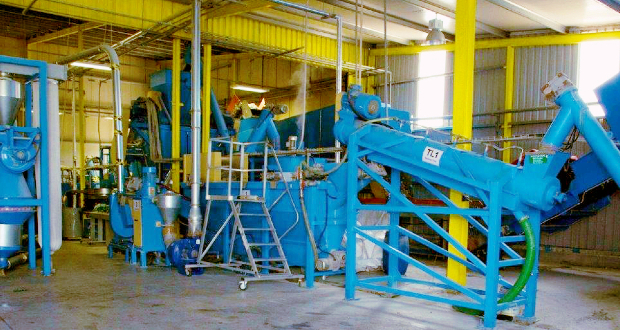
It will be sourced from bottles, pots, tubs and trays to manufacture new rPET food packaging products at the thermoforming packaging specialist’s Arklow production site.
Not only does the agreement help to further secure Waddington Europe’s long-term source of rPET, but it also enables the company to expand its line of Eco Blend products made with post-consumer recycled content sourced domestically in Ireland back into the Irish market.
“Collectively, we hope these new agreements will advance our stake in localised plastics circularity in the Irish market,” said Eduardo Gomes, managing director of Waddington Europe. “We need to start moving to a more holistic and long-term view when it comes to the lifecycle and environmental impact of food-grade packaging. It’s just as important to consider the carbon footprint at its start of life as the environmental impact at the end of its life. Keeping the packaging ‘closed-loop’ economy as local as possible helps to ensure the carbon footprint stays as low as possible. It also utilises waste as a resource and keeps it out of landfills.”
Shabra has recently invested heavily in new sorting lines and a reprocessing facility, which provides intensively washed rPET flake for use directly into the thermoforming and packaging sector.
“We are very much committed to sustainability and a circular economy and all the benefits that go with them,” said Rita Shah, chief executive of Shabra. “By keeping Irish plastic packaging waste in an Irish recycling system, we are confident that we can offer forward-thinking customers like Waddington Europe long-term savings, less reliance on foreign external suppliers, a positive public perception and increased customer loyalty. On a macro level, the localised economic model can increase jobs and innovation, the security of raw material supply and consumer savings, as well as reduce damaging pressures on the environment. To top all this, we have big expansion plans for 2022 that will allow us to double our output.”
Waddington Europe’s’ Irish customers will also benefit from purchasing food grade rPET packaging products that are produced from this localised approach.
“Our customers are beginning to realise that if they develop these circular supply chains, they can reduce manufacturing costs and provide consumers with more sustainable products,” Gomes said. “Additionally, governments are noticing how local recycling and closed-loop economies generate revenue and drive local job creation. It gives us a competitive advantage to show that the products we sell are made from waste plastic generated in Ireland itself. Consumers can see the benefits of their efforts to recycle their plastic food packaging, and we hope it could even help shape our future regulation.”







